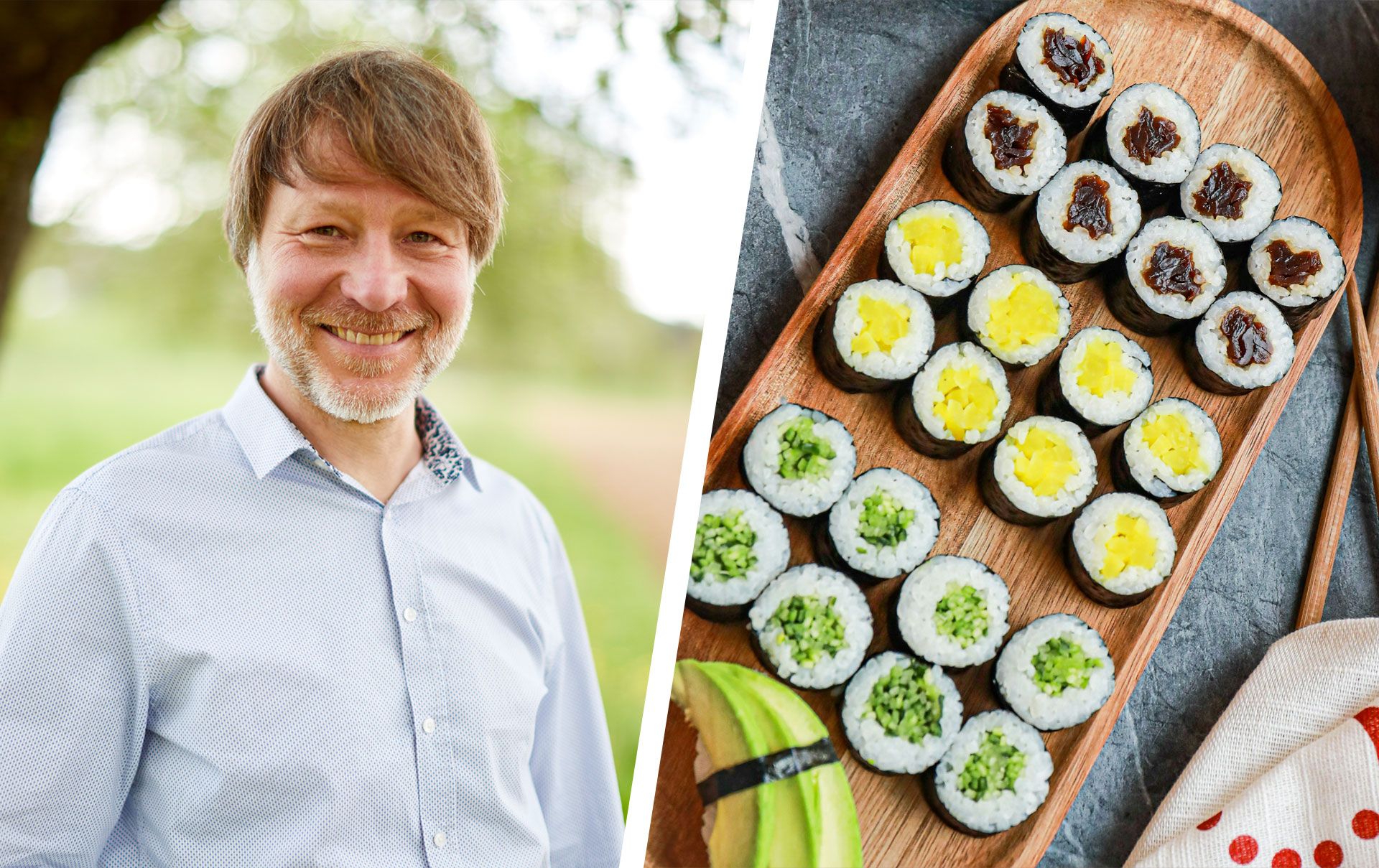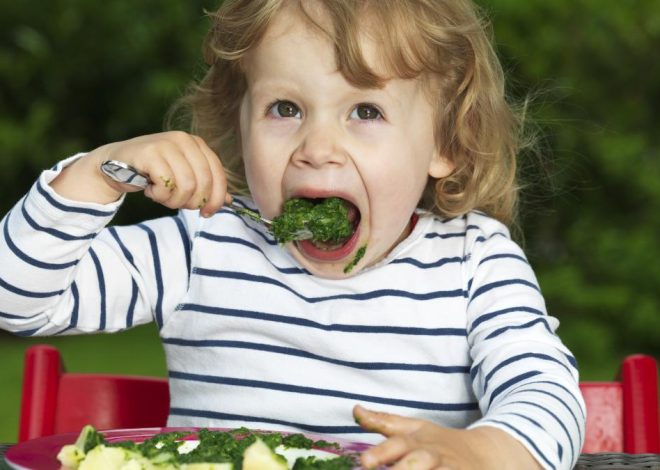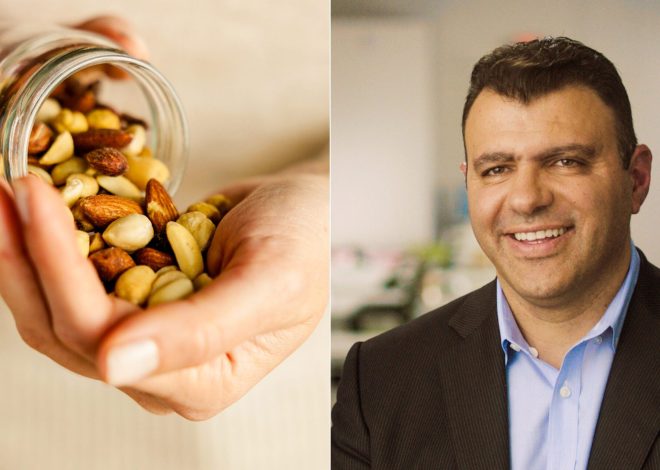
Nutrition expert names “the biggest deficits” of vegans
Markus Keller is one of the leading experts in plant-based nutrition. He explains to Utopia why vegans should pay more attention to their iodine and calcium consumption and which plant-based foods can help.
When it comes to critical nutrients in a vegan diet, vitamin B12 is often mentioned first. There is no other nutrient for which there is such a clear consensus that plant-based foods cannot meet the needs – and that a supplement is therefore necessary. Nevertheless, B12 is not the nutrient that vegans most often have problems with. At least that is what Markus Keller, Professor of Vegan Nutrition and Head of the Institute for Plant-Based Nutrition in Gießen (IFPE), in the Utopia podcast.
Tip for vegans: Don’t forget iodine and calcium!
According to Keller, who himself follows a predominantly plant-based diet, veganism has several health advantages over the mixed diet common in Germany. For iodine and calcium However, there is “the biggest deficits”because vegans often don’t consider these two nutrients. B12 supplementation is an “absolute must”, therefore Most vegans cared yes, says Keller. Iron and zinc, on the other hand, which are also considered critical nutrients for vegans, can be obtained in sufficient quantities through food, provided you take good care of them. “But calcium and iodinethis is often not really taken into account and in this respect there is certainly with many optimization needs.”
Iodine: Why iodized table salt is not enough
iodine be not only a problem for vegans, but a “critical nutrient in the general population”says Keller. In an optimally composed mixed diet, sufficient iodine would come from fish. But this option is not available in a plant-based diet, which is why vegans are often particularly poorly supplied with iodine.
The German Nutrition Society (DGE) comes to a similar conclusion in its position paper on vegan nutrition from June 2024: “Among the potentially critical nutrients, iodine occupies a special position alongside vitamin B12. Iodine is considered critical in the general German population, regardless of diet. However, the supply in vegan diets seems to be even worse.”
Keller recommends a mixture of iodized table salt and nori algae to meet the needs. Iodized salt “should be the basis for all diets”says the expert. But this is not enough to cover the need for iodine alone. Theoretically, this is possible, but then you would get a Problem with too much salt. This can have other health consequences, such as high blood pressure. “Just iodized salt is not enough,” explains Keller.
The DGE has calculated that if you stick to their recommendation of up to 6 grams of table salt per day, only About half of the daily recommended iodine intake of 200 micrograms can be covered with iodized table salt.
Iodine from algae: The dosage is important
Keller therefore sees Nori algae as a necessary supplement in a vegan diet. The IFPE recommends an intake of 1 to 3 grams (dry) per day. This corresponds to approximately a heaped teaspoon of nori flakes or 1.5 nori sheets. For the calculations, the iodine content of nori flakes was estimated at 15 milligrams and that of the leaves at 5 milligrams per 100 grams. However, the iodine content can vary from product to product.
If you don’t like algae or find it difficult to integrate them into your everyday life, alternatively on too Iodine supplementation Keller says, but this should necessarily in consultation with your GP take place.
The DGE also sees algae with moderate and declared iodine content as a possible source of iodine for vegans, but restricts it: “Since algae can be a source of iodine due to their highly fluctuating iodine content, excessive iodine intake (> 500 µg per day) which can lead to a decrease in iodine intake, especially in the case of low habitual health problems can bring, algae cannot be recommended without reservation.”
Keller explains: “The thyroid then reacts to such an excess and this can lead to truly life-threatening metabolic disorders.” However, anyone who adheres to the maximum recommendations and thereby on the comparatively iodine-poor nori algae can prevent such cases. When buying, you should therefore make sure that the iodine content is stated on the packaging.
No iodine is not a solution either
Vegans should be aware of the danger of excessive intake, but this should not deter them from iodine. Iodine deficiency can also serious health consequences In response to such a deficit, the thyroid gland may enlarge and lead to Goiter become.
According to the medical portal MSD Manuals, other consequences include reduced fertility, bloating, hoarseness, impaired mental function, dry and flaky skin, thin and coarse hair, sensitivity to cold and weight gain. In pregnant women, iodine deficiency can lead to Stillbirths and miscarriages Babies who are not treated immediately after birth are also at risk of physical and mental disabilities.
Important NOTE: People with thyroid problems should first seek medical advice before significantly increasing the iodine content of their diet with fortified salt or seaweed.
Calcium: mineral water instead of supplements
But what about Calciumthe second nutrient highlighted by Keller? In an omnivorous diet, i.e. a mixed diet, people usually get enough of it through dairy products. Nevertheless, there are also plant-based foods that contain a lot of calcium. Keller lists: “Broccoli, bok choy, and kale are good sources, as are nuts, legumes, and a few other vegetables.”
One source that is often forgotten, however, is calcium-containing mineral water. “It costs more than tap water, but it contains much more calcium than tap water.” Keller’s institute recommends water with a calcium content of at least 400 milligrams per liter. In combination with the foods mentioned above, you can manage without supplementation.
In addition, one could resort to milk alternatives enriched with calcium. However, it should be remembered that Organic plant milk only with calcium may be enriched if a specific algae is used. However, this procedure is still not not widespread. Products without an organic seal, on the other hand, are often enriched with calcium. Those who do not want to forego organic quality can You can also buy calcium algae (Lithothamnium calcareum) yourself and stir it into your drinkssays Keller.
What happens if you have a calcium deficiency?
According to MSD Manuals, hypocalcemia, or calcium deficiency, can cause the following symptoms: Muscle cramps in the back and legs and neurological or mental disorders, such as confusion, memory loss, depression and hallucinationsThese symptoms disappear when normal calcium levels are restored.
An extremely low calcium level can also Tingling of the lips, tongue, fingers and feet, muscle pain, stiffness and muscle cramps Also Breathing problems due to spasms of the heart muscles, seizures and cardiac arrhythmias are possible consequences.
An excess of calcium can also be harmful to health. However, the recommended intake by the European Food Safety Authority (EFSA) is Maximum intake at 2,500 milligrams per dayAccording to the DGE, the risk of oversupply only exists when taking dietary supplements. About Foodwhich are eaten in normal quantities as part of a balanced diet, Excessive amounts of calcium cannot be supplied.
Keller: Clinical deficiencies rare in vegans
“Fortunately, real clinical deficiency symptoms are very rare, even among vegans,” says Keller, reassuringly, with regard to their general nutrient supply. Nevertheless, nutrient deficiencies can have problematic consequences. It is therefore advisable to to have the most important nutrient values tested every one to two years.
Other critical nutrients of a vegan diet
Based on his many years of research, Keller not only names vitamin B12, iodine and calcium as critical nutrients for vegans. Long-chain Omega-3 fatty acids, selenium and vitamin D should be taken into account in a plant-based diet. The nutritionist explains how this works in the Utopia podcast. He also discusses the numerous advantages of a plant-based diet:
Sources used: DGE (reassessment of the DGE position on vegan nutrition), IFPE Gießen (vegan food pyramid), MSD Manuals (hypocalcemia), EFSA, DGE (calcium), MSD Manuals (iodine deficiency)
** marked with ** or orange underlined Links to sources are sometimes affiliate links: If you buy here, you are actively supporting Utopia.de, because we then receive a small part of the sales proceeds. More information.
Do you like this post?
Thank you for your vote!

Ethel Purdy – Medical Blogger & Pharmacist
Bridging the world of wellness and science, Ethel Purdy is a professional voice in healthcare with a passion for sharing knowledge. At 36, she stands at the confluence of medical expertise and the written word, holding a pharmacy degree acquired under the rigorous education systems of Germany and Estonia.
Her pursuit of medicine was fueled by a desire to understand the intricacies of human health and to contribute to the community’s understanding of it. Transitioning seamlessly into the realm of blogging, Ethel has found a platform to demystify complex medical concepts for the everyday reader.
Ethel’s commitment to the world of medicine extends beyond her professional life into a personal commitment to health and wellness. Her hobbies reflect this dedication, often involving research on the latest medical advances, participating in wellness communities, and exploring the vast and varied dimensions of health.
Join Ethel as she distills her pharmaceutical knowledge into accessible wisdom, fostering an environment where science meets lifestyle and everyone is invited to learn. Whether you’re looking for insights into the latest health trends or trustworthy medical advice, Ethel’s blog is your gateway to the nexus of healthcare and daily living.



